France does a time warp with big step to the right
The worry is the nation may be headed back to where it was under the Fourth Republic.
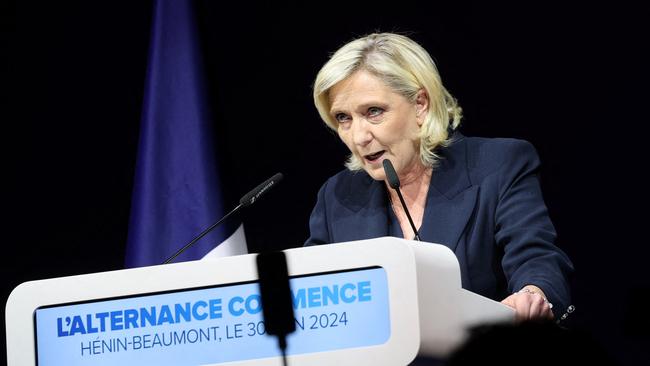
Much of the difficulty in trying to foresee the immediate outcome, and then assess its longer-term implications, arises from the interaction between France’s complex two-stage voting system and the strategic choices of the major contenders.
Up for grabs, on a first-past-the-post basis, are the 501 constituencies (out of 577) in which no candidate secured more than 50 per cent of the ballots cast in last Sunday’s first round.
In each constituency, the candidates eligible to stand are those whose first-round vote was at least equal to 12.5 per cent of that constituency’s registered voters. Simply applying that cut-off to the first-round results, there would, this Sunday, have been three or four-way runoffs in 311 constituencies – a far greater number than in previous legislative elections, where the overwhelming majority of second-round contests involved only two candidates.
But that projection has been dramatically upended by the extraordinary performance in the first round of Marine Le Pen’s Rassemblement National (National Rally) which, together with its allies, topped the polls in 260 constituencies. The RN received 4.2 million votes in the 2022 legislative elections; last week, it secured an unprecedented 10.6 million. That allowed it to elect 39 candidates in the first round, and – on a largely mechanical projection – positioned it to obtain a further 180 to 200 seats in the second round.
The RN would, in other words, fall short of an absolute majority but secure so commanding a presence as to be the sole feasible party of government. Faced with that possibility, both President Emmanuel Macron and the left called for the formation of a “republican front”: that is, for those non-RN candidates who had qualified for the second round, but had come in third or fourth place, to stand down, thus not splitting the anti-RN vote and making it more likely that one of the RN’s opponents would be elected.
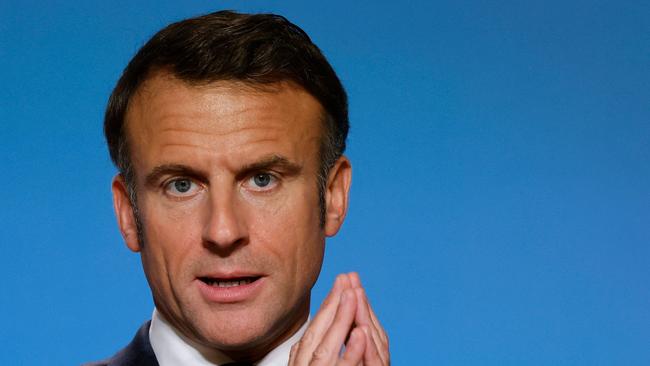
Underlying Macron’s call is the casting of the RN as the “summum malum”, or greatest evil, to be avoided at all costs. But that sits uneasily with Macron’s own statements. After all, in May 2023, when his then prime minister, Elisabeth Borne, excoriated the RN, Macron criticised her for engaging in “facile moralising”. Even more importantly, Macron has (quite rightly) described La France Insoumise (France Unbowed) – the far-left party headed by Jean-Luc Melenchon – as anti-Semitic, anti-democratic and economically reckless.
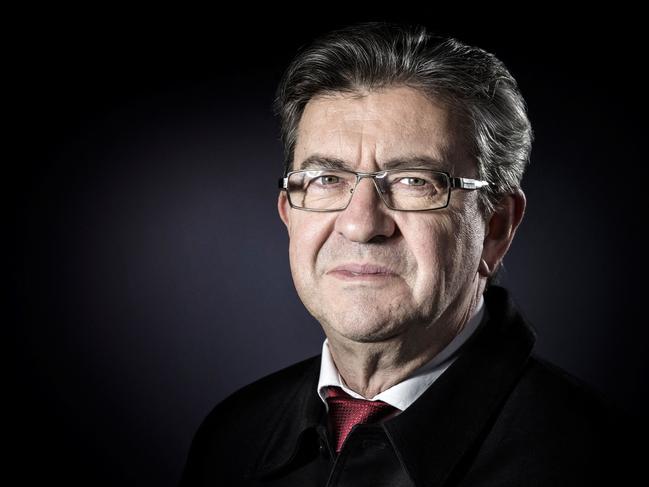
That just a few days ago, an “anti-fascist” youth group close to LFI allegedly assaulted a young Jewish man in the Paris metro, claiming that he was a militant Zionist, makes Macron’s characterisation of LFI all the more convincing.
Asking centrist voters to prefer LFI, which has strong Islamist backing, to RN has therefore been extremely controversial, leading to some highly visible splits in Macron’s own coalition. Reflecting those concerns, the centre-right Les Republicains (The Republicans) have refused to endorse LFI, though a few of LR’s candidates have withdrawn in favour of better-placed candidates from other non-RN parties.
As for the left, which has led the way in demonising the RN, it has largely respected the call to withdraw in constituencies where the RN gained a plurality in the first round and another non-RN candidate has a greater chance of beating it in the second.
In the end, some 210 eligible candidates from the left and the centre have decided not to proceed into the second round, slashing the number of three or four-way contests from 311 to 95.
Although that is certain to reduce the RN’s gains, the exact impact is hard to predict, as it depends on how many non-RN voters are willing to vote for parties they spurned in the first round. The opinion polls differ widely in that respect – and so do the strategic calculations underpinning the non-RN parties’ choices.
Macron’s goal, as best one can tell, is a National Assembly in which no single grouping dominates. With Macron’s party getting just 21 per cent of the vote and trailing both the RN and the left coalition, Macron hopes the withdrawals will benefit at least a few of its candidates. His advisers concede that they will also benefit LFI, which will remain an implacable and highly disruptive opponent. However, they view that as the price to pay for strengthening the somewhat more acceptable socialists and greens, giving the President’s party slightly more room in which to forge tactical alliances.
As for Melenchon – a fiery demagogue whose heroes include Robespierre, Fidel Castro and Hugo Chavez and who has repeatedly praised Vladimir Putin – he has no qualms about sacrificing a few possible LFI seats in this election for a much greater prize down the road.
Thus, Melenchon expects to be second-placed to Marine Le Pen in the first round of the 2027 presidential elections. His aim, this time around, is to establish the principle that preventing the RN from securing office is the uppermost goal – so that with the other non-RN candidates withdrawing, he would have a real chance of gaining the extremely powerful presidency in just three years’ time.
And even if events don’t ultimately play out that way, Melenchon is quite happy to see Macron remain in office until 2027, hampered by an unworkable legislature and losing whatever support he and the centre still retain.
None of that augurs well for France, which is struggling with high and rising public debt, fuelled by a budget deficit that substantially exceeds the EU’s fiscal rules. Earlier this week, the government, in an attempt to appease left-leaning voters, suddenly withdrew its proposed reform of unemployment benefits, which it had correctly described as indispensable. That concession could well be the first of many, entrenching the country’s deep economic and social divide – and the searing resentments it causes.
Nor is the political outlook much rosier. The concern is that France is headed back to where it was under the Fourth Republic, which lasted from 1946 to 1958. During those years, the French Communist Party, which, once the Cold War got under way, was excluded from any governing coalitions, controlled some 25 to 30 per cent of the National Assembly. Meanwhile, the Gaullists, who were unwilling to legitimate a constitution that de Gaulle considered fundamentally flawed, controlled another 15 to 20 per cent. With those two parties out of the running, governments invariably rested on an extremely narrow base, and collapsed whenever a handful of parliamentarians crossed the floor. The Fourth Republic consequently lurched from crisis to crisis until it finally fell apart.
Now, with the RN treated as a pariah, and LFI acting as anti-system disrupter, that scenario could readily recur. Macron does have a few cards up his sleeve, such as shifting from first-past-the-post to proportional representation. But having argued on these pages in 2017, when The Financial Times and The Economist hailed Macron’s election as a turning point, that not even Macron could reverse the structural forces roiling French politics, I remain unconvinced as to those remedies’ effectiveness.
The next few years are therefore likely to be tumultuous at best, crisis-ridden at worst. As Germany’s governing coalition comes under growing pressure, and the US enters a period of turmoil, the West’s enemies may prove to be this election year’s only real winners.


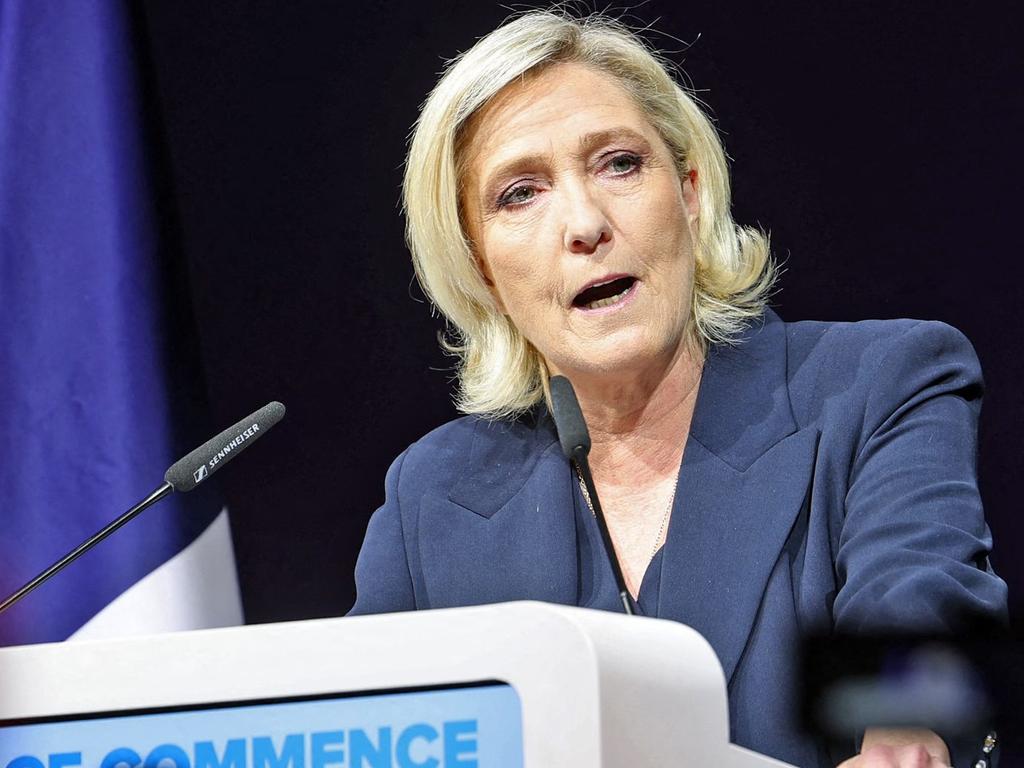
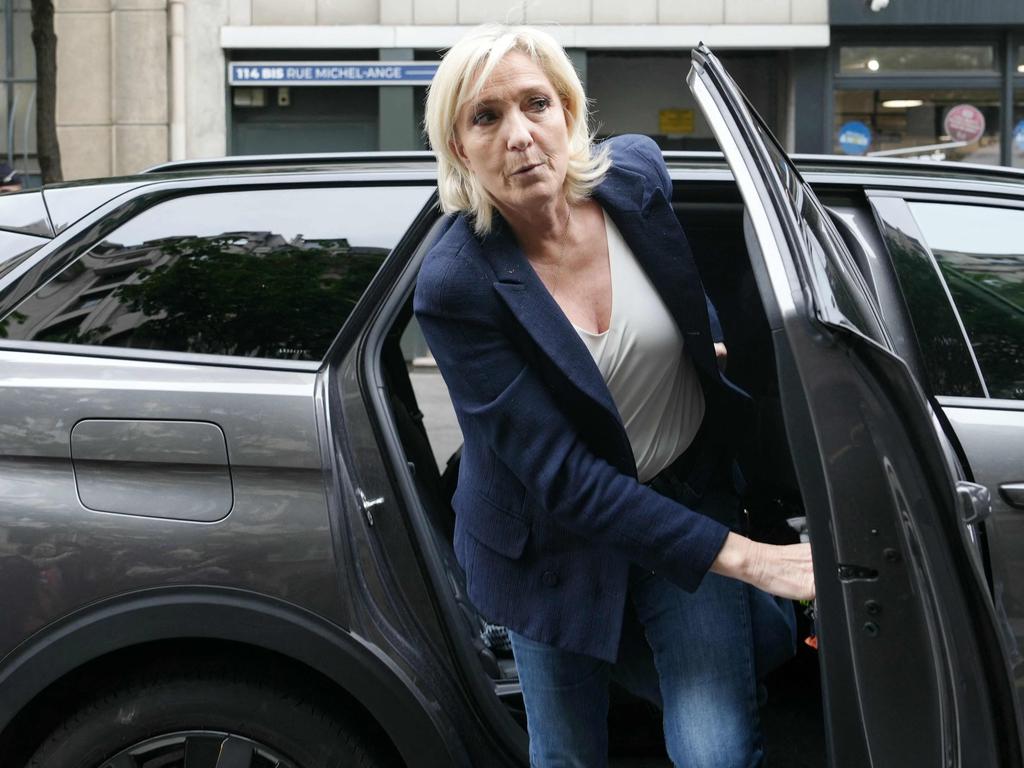



With French voters heading to the polls this Sunday, the most likely result remains a National Assembly lacking a clear majority and polarised between the far left and the far right. Whether a governing coalition can be cobbled together is highly uncertain; whether any coalition can survive for long is even more questionable.